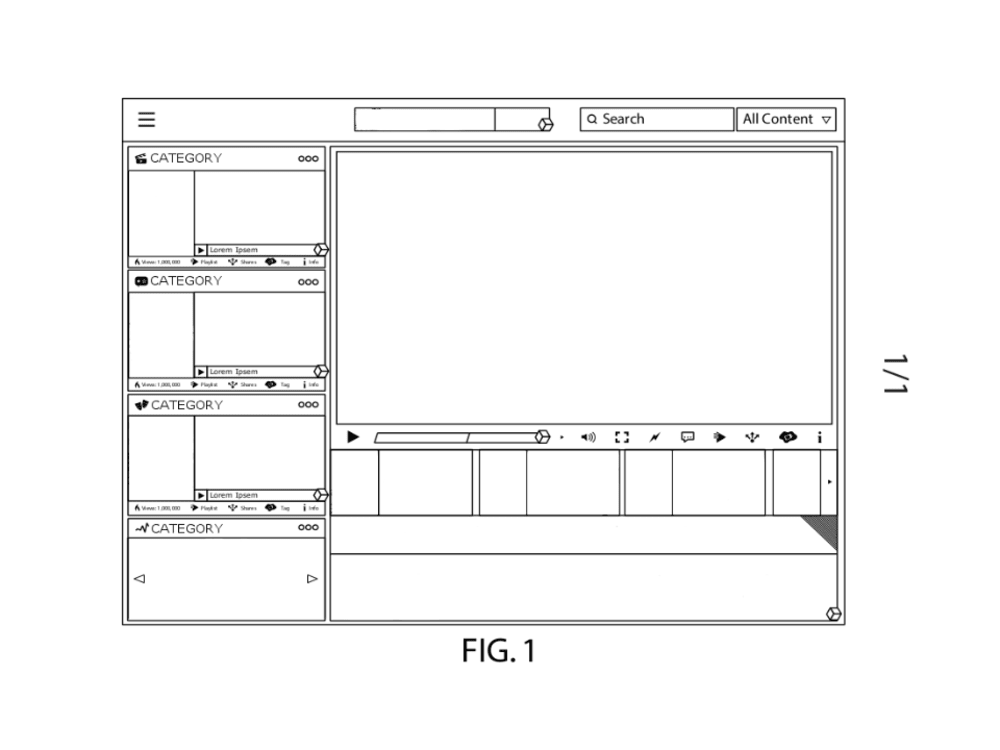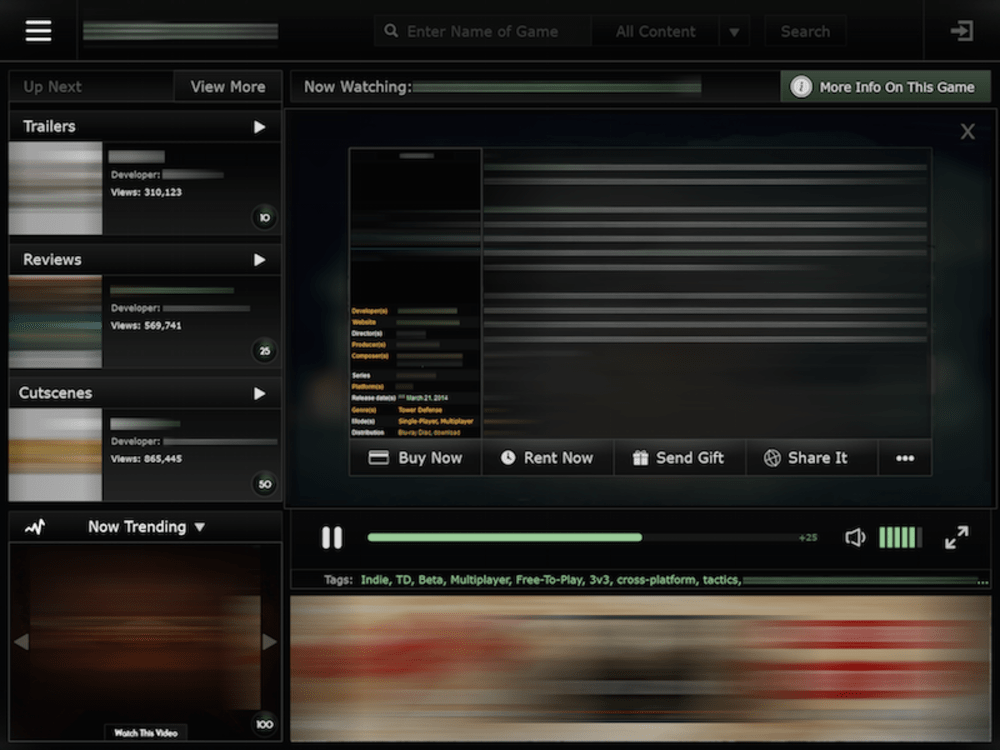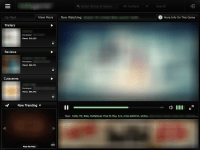Innovation
ProjectMQ is a dynamic social service that gamers will use to discover and share the newest media, news, and events related to their favorite indie games. ProjectMQ works on any device, so our users can enjoy our app anytime, anywhere. Our innovation combines the best features from popular media apps, creating a unique social experience for gamers that's entertaining and informative.
ProjectMQ highlights high-definition video, audio, and image collections from indie gaming companies around the world. The service tailors the media experience for each user through a robust content discovery system. We've designed the service to integrate with 3rd party sites (Amazon, Gamestop, Gamefly, etc.) via APIs, which helps convert user media consumption into retail transactions. This gives our users a variety of convenient opportunities to buy or rent an indie game that they discover with our service. We’ve designed ProjectMQ’s patent-pending system to effectively maximize user engagement, creating a unique experience that no other app has.
Manufacturability
Our innovation is currently in development. ProjectMQ is a digital product, and the team members are building it in-house, so creating and distributing it has a relatively nominal material cost. We’ve already completed the initial interface designs, some of which are under pending patent review by the UPSTO, and have used those designs to create an interactive mockup. We’re now implementing the first version of our prototype in the Unity game development engine. With the Unity engine, we’re able to easily publish ProjectMQ to a number of web, mobile, and gaming platforms. We expect to have a demo of that prototype ready by August 2015. Once we’re done with the prototype, we’ll begin A/B testing with a small user group, so that we can launch ProjectMQ in private beta Spring 2016.
Marketability
Our target customers are men and women between the ages of 8 and 35; in 2014, the Electronic Software Association reported that 56% of gamers were male, and 44% were female [http://www.theesa.com/wpcontent/uploads/2015/04/ESAEssentialFacts2015.pdf]. We estimate that our target market contains approximately 1.775 billion (and growing) global potential customers. We’re using a freemium business model to commercialize our product. With this model, gamers can enjoy the ad-supported app for free, and pay a small monthly fee to remove ads and unlock premium content. Our pricing strategy is consistent with the growing millennial demand for media consumption. Spotify also utilizes a freemium business model for its music service, and recently announced that nearly 20 million of its 75 million active users are now (premium) subscribers.
Twitch is a great success story for gaming media, and is one that validates our app's marketability; Twitch started out in 2007 simply as a gaming channel on the media streaming site Justin.tv (gaming.justin.tv). As of February 2014, Twitch is the fourth largest source of Internet traffic during peak times in the United States, behind Netflix, Google, and Apple. In August 2014, Amazon announced plans to acquire Twitch for nearly $1 billion [http://www.nytimes.com/2014/08/26/technology/amazonnearsadealfortwitch.html]. Twitch now has about 6 million daily unique visitors and 32 million daily pageviews.
Like this entry?
-
About the Entrant
- Name:Marcus Howard
- Type of entry:teamTeam members:Marcus Howard
Malcolm Howard
Avik Sogoyan - Patent status:pending








